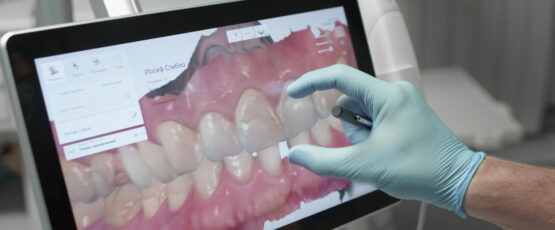
We rarely think about our teeth until something causes us to feel unhappy about them. In fact, it is often only when we lose or damage them that we become truly aware of their importance. So how much do you really know about your teeth? Here are 5 questions to test your knowledge.
1. How many teeth does a child have?
Most of us know all about stress of teething and visits from the tooth fairy, but how many of the little white things do children actually have? Milk teeth begin to form before birth and generally cut through between the ages of 6 – 12 months old. It can take up to about three years of age for a full set to be fully established. A full set consists of a total of 20 teeth.
The proper name for what are typically known as milk teeth is deciduous teeth. These teeth begin to fall out between the ages about five to six years old. Don’t be fooled by their importance either – they play an essential role in the correct formation of the jaw cavity, creating the space for the permanent teeth to grow into. Milk teeth also play an essential part in the development of the smile and speech. These are just some of the reasons it’s important for children to begin visiting the dentist as early as possible.
2. So do adults have 20 teeth too?
It would be logical to assume that each milk tooth that is lost is replaced by its adult version – but in fact, you’d be wrong. The final number for an adult is 32 – 12 more than a baby!
Most of these teeth will have formed by the age of about 12 -14, but the infamous wisdom teeth – the last four to emerge – typically appear between 17 – 21 years.
3. What are the wisdom teeth and why are they often removed?
It’s widely believed that the name wisdom teeth derives from the wisdom we should possess by the time they appear. Wisdom teeth are the last set of molars to erupt and anthropologists believe that wisdom teeth were the evolutionary answer to our ancestor’s early diet of coarse, rough food – like leaves, roots, nuts and meats – which required more chewing power and resulted in excessive wear of the teeth. Today’s diet with its softer foods, along with the introduction of tools such as forks, spoons and knives, has actually rendered the wisdom teeth irrelevant. Consequently, evolutionary biologists now classify wisdom teeth as vestigial organs, or body parts that have become functionless due to evolution.
Another effect of this evolution is that the human jaw has also become smaller, leading to the problem of impacted or blocked wisdom teeth that only partially emerge. This can lead to tooth pain, infections and abscesses. In such cases, it may be in the patient’s best interest to have them removed.
4. Do different teeth have special names?
So you know your wisdom teeth and you may well have heard of molars, but are there any other types of teeth? In total, there are four types of permanent teeth:
Incisors. The four front teeth on the top and bottom jaw that are used for cutting and chopping food.
Canine teeth. These are sharp, pointy teeth which help to tear food. There is one on each side of your incisors on your top and bottom jaw, making a total of four.
Premolars. Premolars (also called bicuspid teeth) are located next to the canine teeth and are bigger and wider than the incisors and canine teeth. There are four on your top jaw and four on the bottom, giving eight in total. They are used for crushing and grinding food.
Molars. The molars are your strongest teeth and together with your tongue help you swallow food, mashing it up until it’s ready to be swallowed safely. There are eight molars: four on top and four on the bottom.
5. What are teeth actually made of?
There are actually two parts to the tooth. The external covering of the visible part of the tooth, known as the crown, and the inner parts which actually make up most of the tooth.
The external surface of the tooth is made from a material called enamel. This is a hard, shiny substance which protects the sensitive inner part of the tooth and is actually the hardest natural substance in the body.
Beneath the enamel is a sensitive substance known as dentine. This is softer than the enamel and serves to protect the inner part of the tooth which we call the pulp. The pulp is where each tooth’s blood supply and nerve endings are found, which play an essential part in keeping the tooth alive and healthy.
Finally, there is a substance known as cementum which covers the root of the tooth, and the periodontal fibres which connect the tooth to the jaw.
Whether you are missing a single tooth or are in need of a complete reconstruction, the low-cost dental implants solutions available at the award-winning Perfect Pearls Dental Implant Centres mean that you can restore your smile and rebuild your confidence at an affordable price.
To talk to us now, call us on Wolverhampton 01902 500823 or get in touch.







